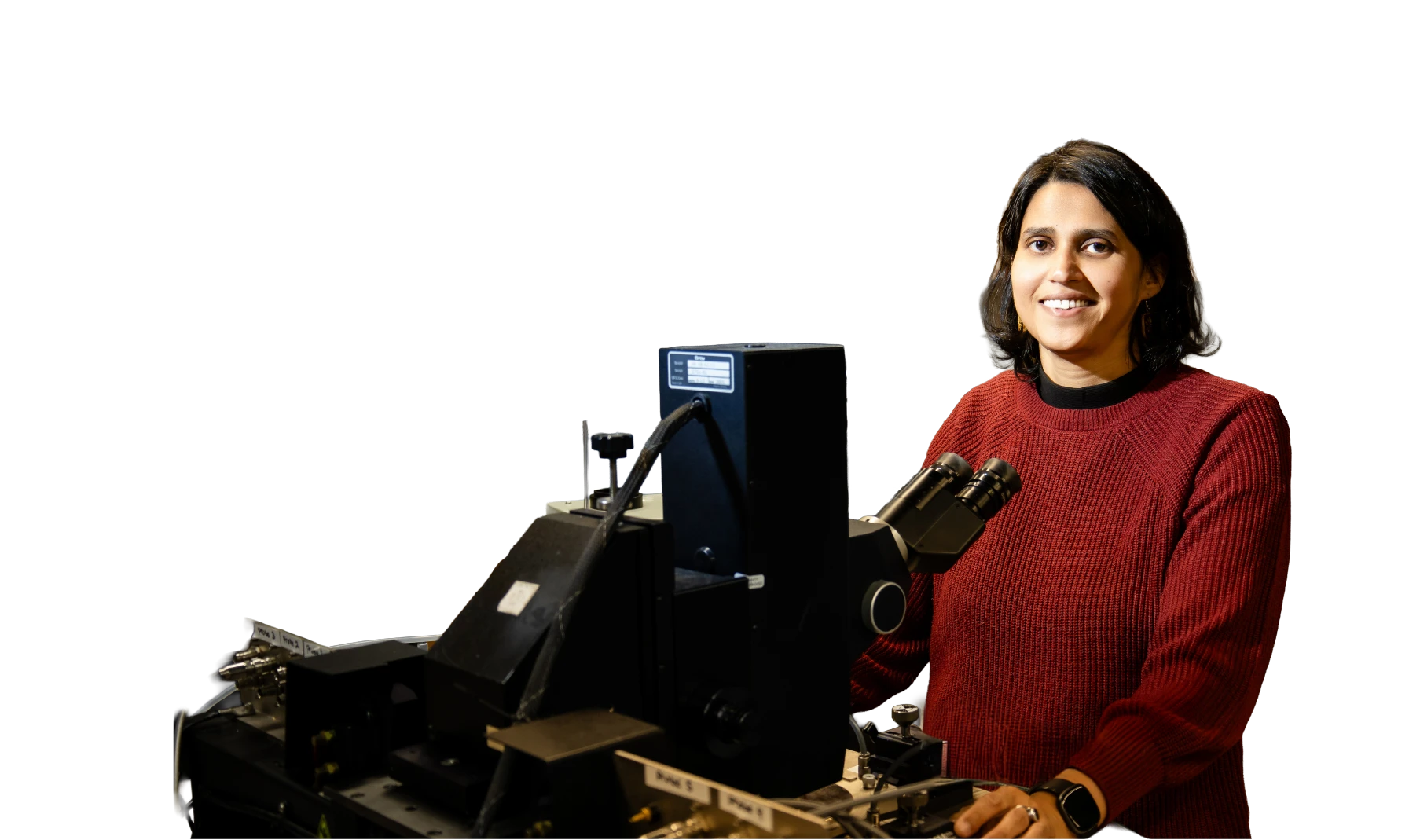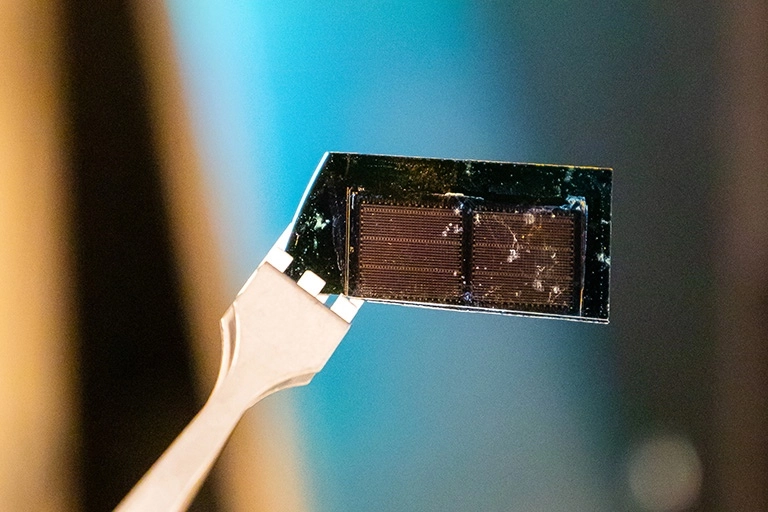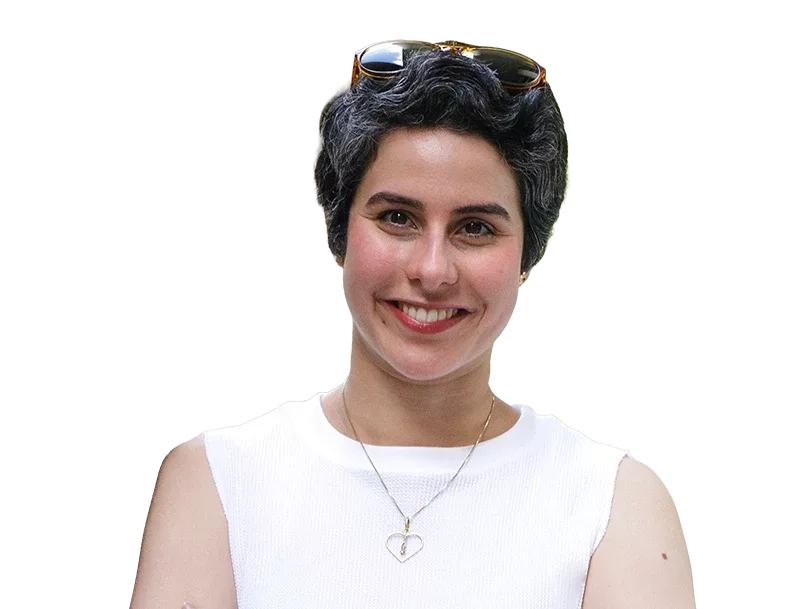

Dr. Tania Roy
Associate Professor of Electrical & Computer Engineering at Duke University
Dr. Tania Roy
Associate Professor of Electrical & Computer Engineering at Duke University
AI Hardware With People-Centered Design
As artificial intelligence, large language models and machine learning proliferate, so do the massive, energy-sucking data centers needed to power them. Google’s U.S. data centers alone used as much as 12.7 billion liters of fresh water to cool their servers in 2021, according to a study.
But what if, instead of building ever-bigger data centers, we built a new class of computer hardware requiring far less energy to handle artificial intelligence and other new technologies?
Dr. Tania Roy and her research assistants are working on that. In a busy lab at Duke University’s Fitzpatrick Center for Interdisciplinary Engineering, Medicine and Applied Sciences, they are developing neuromorphic, or brain-like, semiconductor devices that can complete AI and machine learning tasks without power-hungry server farms.
“The transistor is the basic device that has revolutionized everything,” Roy said. “Our computers, mobile phones — everything has them. We want to change that basic building block for AI, so that it can do AI more efficiently.”
Dr. Roy’s lab contains probe stations and other electrical measurement instruments that allow the researchers to test and develop tiny futuristic transistors. The goal is to develop neuromorphic circuitry that, like human brains, can handle complex tasks while using very little energy.
Holding one of the experimental circuits with tweezers, Roy explained that such chips could allow smart cameras or other devices to perform complex AI tasks without a data center connection. She said the tiny neuromorphic devices will pack so much information, and process it so efficiently, that the next class of Amazon’s Alexa virtual assistant might operate without an internet connection.

“The rate at which the world is going, people want a lot of new things. Autonomous cars — everything. The progress is very fast,” she said. “There’s a big bottleneck because they’re saying let’s build even bigger servers so that we can process more. Advances in hardware must help them.”
She and other neuromorphic computing researchers keep Duke University at the forefront of research in the field. The school ranks among the world’s top universities in artificial intelligence and machine learning research.
“Whatever is possible at the cutting edge, we are doing that,” Roy said. “There will be many more opportunities for people to do things with AI and it’s very optimistic. Of course, for everything that we invent, there can be a downside, but everything has that problem, right? We will figure it out.”






